Jun 3, 2025 11:25 AM
In Memoriam: Al Foster, 1943–2025
Al Foster, a drummer regarded for his fluency across the bebop, post-bop and funk/fusion lineages of jazz, died May 28…
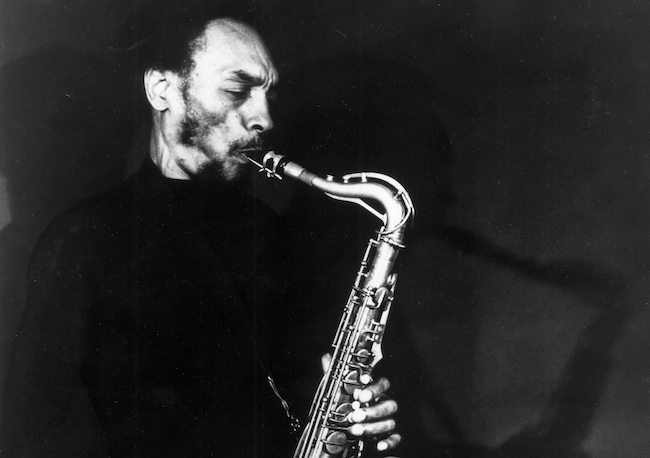
Sam Rivers (1923–2011)
(Photo: DownBeat Archives)There’s a photo of Sam Rivers at the White House, most likely from the so-called “White House Jazz Festival” on the South Lawn during Jimmy Carter’s administration. “That blue suit he had on? He made that,” said Monique Rivers Williams, daughter of the revered multi-instrumentalist. “He sewed all his own clothes ... he wasn’t just a musician.”
Hundreds of artifacts like that photo—including some of Rivers’ own hand-made dashikis—tell a more personal story of this renaissance artist, who, along with others like Cecil Taylor, Ornette Coleman and Andrew Cyrille, helmed the free-jazz movement. The responsibility for telling this story falls to Williams, who grew up in Studio Rivbea, Rivers’ Greenwich Village loft where free-jazz flourished in the 1970s. Since 2006, she’s been organizing a catalog of her father’s personal effects, all of which recall a childhood spent at the epicenter of the New York jazz scene. “These are memories I can’t let go of,” she said.
Among Rivers’ lifetime collection of materials—more than 50 storage containers’ worth—lie a trove of mostly never-heard recordings in every format available during the past 50 years, from reel-to-reel to cassette to CD and VHS. “There’s an extraordinary amount of historical information there from a critically important decade in jazz,” asserted Ed Hazell, the music writer and producer currently tasked with curating the collection. “For someone like me, who’s loved [Rivers’] music since I was a teenager, all of this information was just heart-stopping.”
With Williams’ permission, Hazell spent a year poring over Rivers’ archive with an ear toward selecting the most choice recordings for release on NoBusiness Records, a pre-eminent imprint for free-jazz and improvised music based in Lithuania. The time seemed right, he said, to start unveiling these important works. “The Loft Era [in jazz] is just starting to get attention from scholars,” he pointed out. “A lot of books have been written on it lately, and I think it’s just the tip of the iceberg.”
In May, the label released Emanation, the first of eight albums in the Sam Rivers Archive Project. The album depicts a 1971 concert at the Jazz Workshop in Boston, after Rivers had completed stints with Miles Davis’ and Cecil Taylor’s bands. He was heading up his own trio with bassist Cecil McBee and drummer Norman Connors, and feeling out the limits of extended improvisation. “It’s fascinating as an early example of what he was setting out to do ... developing a characteristic voice for each instrument, letting the rhythmic feel be fluid and changing without any preagreement,” Hazell noted.
The two tracks that make up the album, each more than 30 uninterrupted minutes, crackle with intensity as Rivers uses horns, flute or piano to navigate the unsettled terrain that lies between bop and the avant-garde, classical and modern. The ephemeral moments of these lengthy improvisations begin to take on a restless shape as the trio borrows from these lexicons; on each, what starts with a simple (albeit out) melodic intro descends into cacophonic splendor before too long. But hidden in and among the squeals and screams are moments of quiet impressionistic beauty. It’s a masterly display.
After Emanation, the label plans to release two albums a year for four years, in roughly chronological order, drawing from the archive and Rivers’ own portfolio of intended releases; the label will choose the album titles from a list of possibilities written in Rivers’ own hand. “There’s still a lot to go through, so we haven’t finalized all the releases yet,” Hazell said.
With the launch of her father’s legacy recordings, Williams concedes that it’s probably time to find a permanent home for his carefully maintained collection. Organizations and scholars have expressed interest in acquiring it, and she’s begun to take these proposals seriously.
“It’s time for me to turn it over, hopefully, to an educational institution that will teach and play Sam Rivers’ music,” she said. “Because that’s what my father wanted.” DB
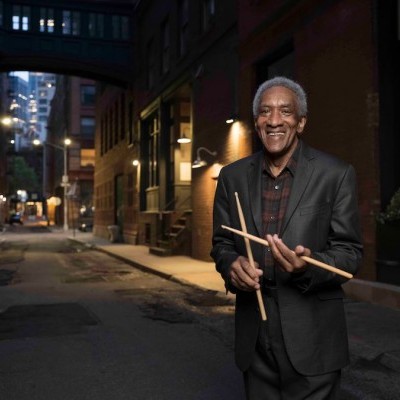
Foster was truly a drummer to the stars, including Miles Davis, Sonny Rollins and Joe Henderson.
Jun 3, 2025 11:25 AM
Al Foster, a drummer regarded for his fluency across the bebop, post-bop and funk/fusion lineages of jazz, died May 28…
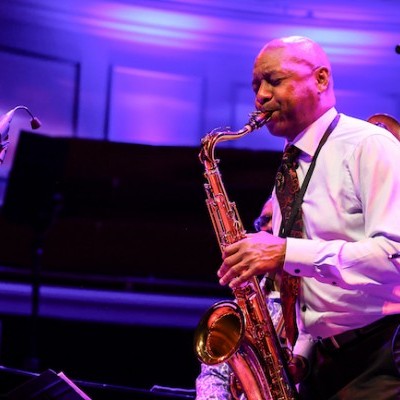
“Branford’s playing has steadily improved,” says younger brother Wynton Marsalis. “He’s just gotten more and more serious.”
May 20, 2025 11:58 AM
Branford Marsalis was on the road again. Coffee cup in hand, the saxophonist — sporting a gray hoodie and a look of…
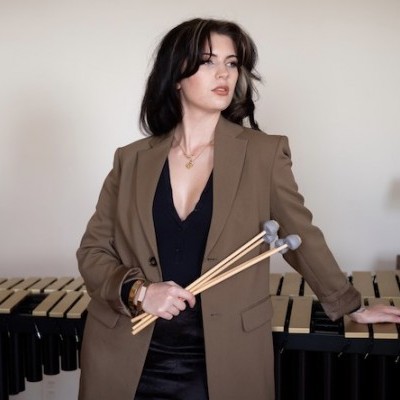
“What did I want more of when I was this age?” Sasha Berliner asks when she’s in her teaching mode.
May 13, 2025 12:39 PM
Part of the jazz vibraphone conversation since her late teens, Sasha Berliner has long come across as a fully formed…

Roscoe Mitchell will receive a Lifetime Achievement award at this year’s Vision Festival.
May 27, 2025 6:21 PM
Arts for Art has announced the full lineup for the 2025 Vision Festival, which will run June 2–7 at Roulette…
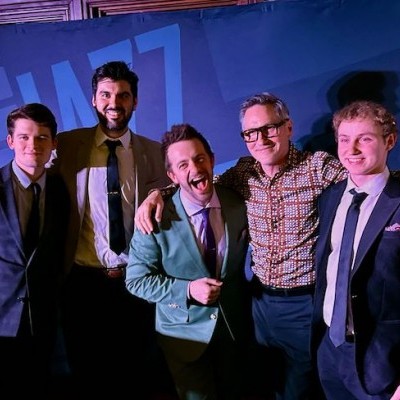
Benny Benack III and his quartet took the Midwest Jazz Collective’s route for a test run this spring.
Jun 3, 2025 10:31 AM
The time and labor required to tour is, for many musicians, daunting at best and prohibitive at worst. It’s hardly…